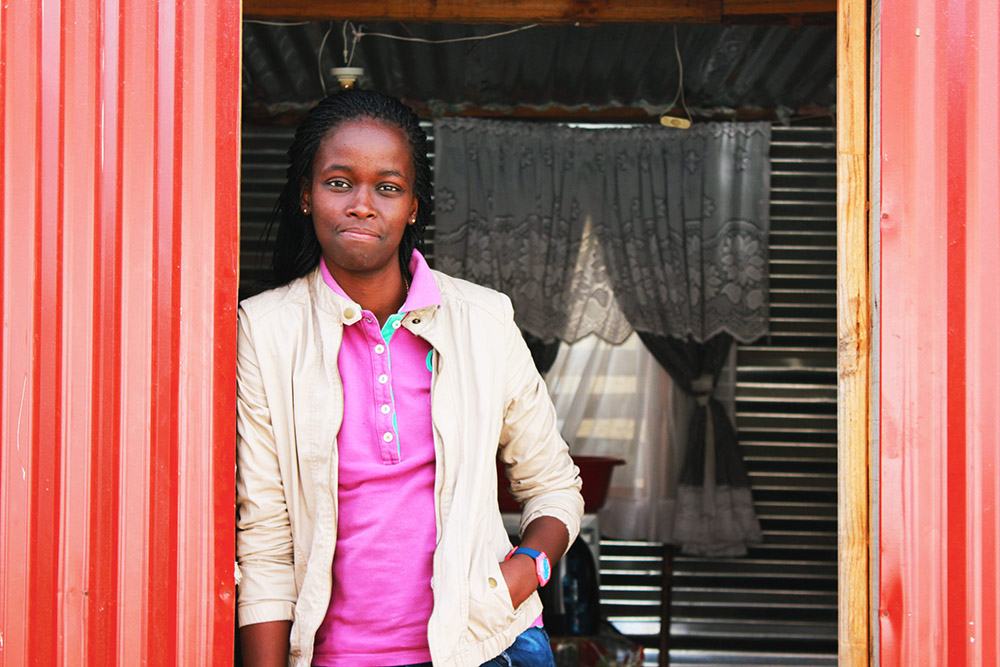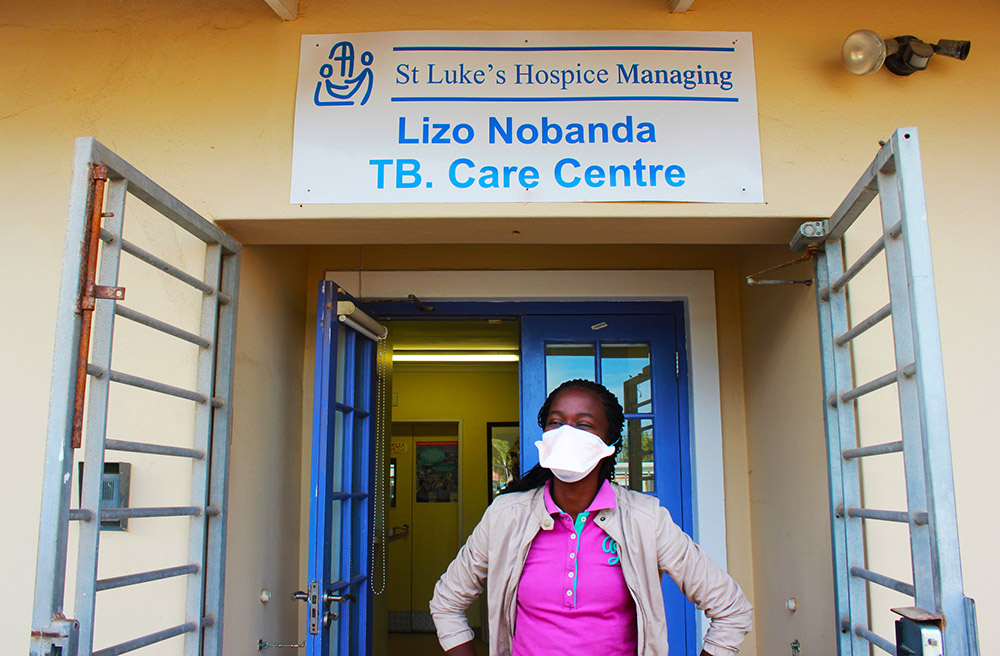When Phumeza Tisile (23) discovered she had been infected with the deadliest form of tuberculosis (TB), she thought was going to die. As a result of her treatment, Tisile lost her hearing and became permanently deaf, but miraculously, she survived the disease. An antibiotic called linezolid saved her life, and although it could save many more, at over R700 per pill, the drug is simply unaffordable. Tisile now stands at the forefront of a campaign to deliver affordable drug-resistant TB treatment to those who need it.
Tisile was cured of TB in August 2013, after a punishing three-year battle. “Before TB, I had a good life, going out with friends, attending university, having big dreams. But then the TB started and all my dreams were shattered,†says Tisile.
TB is South Africa’s deadliest killer. In 2010, the disease was responsible for 12% of the country’s deaths.
Drug resistant TB has become particularly challenging for healthcare practitioners. Only 42% of multi-drug resistant TB (MDR-TB) patients are cured, while patients with extensively-drug resistant TB (XDR-TB) have only a 20% chance of survival.
At the age of 19, Tisile was misdiagnosed first with TB then MDR-TB. Her treatment for MDR-TB included a daily regimen of 20 tablets, and a course of kanamycin injections, which had to be taken every day for six months. The side effects of the drugs were crushing. She suffered from daily bouts of vomiting and the injections left her permanently deaf.
“I was lost, I was shocked. The doctors said that I am permanently deaf, there’s nothing they can do about it,†Tisile says.
In 2010, doctors did not have the necessary tools to diagnose XDR-TB, and it was only after Tisile lost her hearing that she was diagnosed the condition.
South Africa’s TB rate is among the highest in the world and incidences of MDR-TB and XDR-TB are rising.
“At the moment [government] will tell you that the normal TB is under control, but the MDR and XDR is on the increase. That is the problem,†said Derick Esterhuizen, Western Cape Provincial Manager of the South African National Tuberculosis Association (Santa), a non-government organisation that specialises in the prevention, treatment, and rehabilitation of TB patients.
Esterhuizen says the side effects of the pills, which include vomiting, nausea, flu-like symptoms, pins and needles, and skin rashes, make patients loathe to take them.
According to the Western Cape Department of Health, the percentage of people who default on their treatment was 7% in 2012/2013. This was an improvement however on the default rate of 9.4% that there was in 2008/2009.
Mark van der Heever, deputy director of communications at the Department of Health, told the Daily Vox that despite the decrease, 7% is still too high. The department had set itself a goal of keeping default rates below 5% for 2011.
Despite the hardships, Tisile was never a defaulter. She began treatment for XDR-TB in September 2010, and was discharged in April 2011 after an 8-month stay in hospital. To this day, her time in hospital haunts her.
“I used to have nightmares. I would dream that I was dead, that I was in a box, but they said that it was one of the side effects of the medication,†she says.
After being discharged, she still went to a clinic in Khayelitsha each day to receive her medication. It was there that she met Dr Jenny Hughes of Doctors Without Borders (MSF), who introduced her to MSF’s XDR-TB treatment programme. MSF had been investigating linezolid as a treatment option for TB patients, and found that if the drug was used in combination with other drugs, it could be effective.
At first, it seemed as though it wasn’t working. After four months of the treatment, Tisile still tested positive for XDR-TB. She was told she wouldn’t survive and was urged to see a priest. Despite the devastating news, she continued her treatment and in February 2012, three months after being told she was going to die, her sputum cultures miraculously came back negative.
After 18 months of grueling XDR-TB treatment, Tisile finally swallowed her last tablet to cheerful celebrations at Lizo Nobando clinic in August 2013.
Since then Tisile has worked closely with MSF to raise awareness about drug resistant TB and campaign for research into less toxic treatment and a possible vaccine. Her demands have been bound into a TB manifesto, which she co-authored with Dr Hughes and delivered together with 50,000 signatures to the World Health Assembly in Geneva, Switzerland earlier this year.
Tisile credits her recovery to the drug linezolid. They were effective, she says, but had their downsides. “The drugs were a nightmare to take,†she says. Seizures, nausea, vomiting, limb heaviness and pain have been reported by people taking linezolid. And then there’s the cost.
Linezolid is currently under patent to pharmaceutical giant, Pfizer. The American Food and Drug Association has approved of the use of linzeolid for treatment, but the pill is still only available through private companies in South Africa, primarily because it is too expensive for the national health department. There has also been little research into its safety and efficacy.
Despite the side effects and the lack of data, it is believed to be a reliable treatment for a disease that leaves 80% of its patients unlikely to survive and attempts are currently being made to make the drug more accessible.
In June 2014, the Medicines Control Council (MCC) made a generic version of linezolid available to MSF patients in Khayelitsha. The generic version came with an 88% price reduction on the pill offered by Pfizer. However, the pill is not available nationally. The generic drug been under a fast-track review since May 2013 but its unclear if or when it will be approved. MSF, TB patients and activists picketed the MCC offices in Pretoria last month to pressure the registrar of medicines to complete the review and make the potentially life-saving drug available to more people.
Although she came through XDR-TB with her life, Tisile’s hearing loss still weighs heavily on her. Her deepest wish is to return to university. If doctors approve the use of a cochlear implant, she should be on track to return next year.
“Perhaps when I get my hearing back with the cochlear implant, I will be happy. Then I can go back to university and resume my dreams. For now I’m okay. No time for sadness,†she says.

![phumeza tisile_1 [slider]](https://www.thedailyvox.co.za/wp-content/uploads/2014/11/phumeza-tisile_1-slider.jpg)









